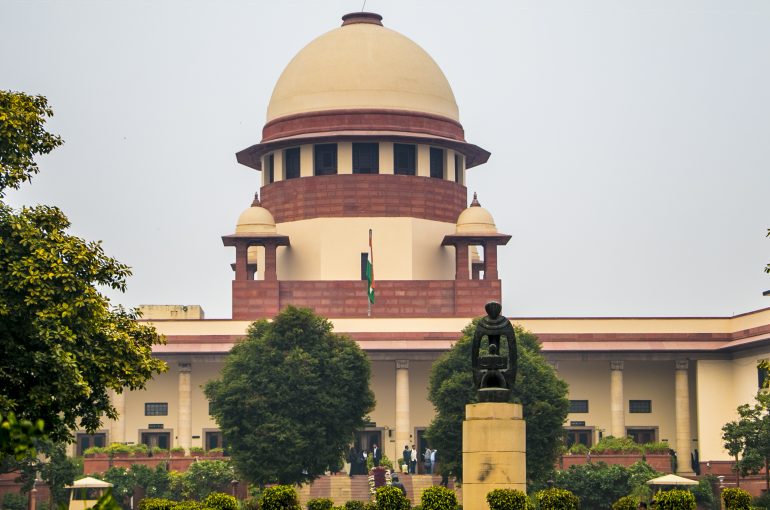WHEN LIBERTY MEETS LIFE: THE CONSTITUTIONAL SOUL OF REPRODUCTIVE RIGHT

- Introduction to the Topic:
The Supreme Court of India, in the case of Arun Muthuvel vs Union of India W.P.(C) No. 756 of 2022 has delivered a landmark Judgment by reinforcing that human rights and personal liberty lie at the heart of any law governing assisted reproduction. In a progressive and humane judgment, the Supreme Court held that couples who had commenced the surrogacy process before the enactment of the Surrogacy (Regulation) Act, 2021, are entitled to continue their surrogacy journey even if they now exceed the statutory age limits prescribed under Section 4(iii)(c)(I) of the Act. This decision strikes a delicate but necessary balance between regulation and the fundamental right to parenthood.
The enactment of the Surrogacy (Regulation) Act, 2021 and the Assisted Reproductive Technology (Regulation) Act, 2021 sought to introduce ethical safeguards and uniform standards in assisted reproductive practices across India. However, these laws also imposed several restrictions, including specific age limits for intending couples, which inadvertently created hardship for those who had already initiated medical procedures prior to the Acts coming into force.
The Supreme Court’s ruling in Arun Muthuvel v. Union of India addressed this crucial legal and human question — whether couples who had lawfully created and frozen embryos before the enforcement of the Act could be denied their use on account of new statutory age restrictions. The decision provides clarity on the non-retrospective operation of such regulatory provisions and reaffirms the primacy of reproductive rights within the ambit of constitutional liberty.
- Brief facts of the Case:
The Petitioner, Dr. Arun Muthuvel, an IVF specialist, approached the Supreme Court representing a group of couples adversely affected by the implementation of the Surrogacy (Regulation) Act, 2021. These couples had, before the Act came into effect, undergone fertility treatment and created embryos through in-vitro fertilization (IVF), which were subsequently cryopreserved for future surrogacy.
After the Act came into force, authorities refused to grant permission to use these embryos, citing the newly introduced age limits for intending couples (23–50 years for women and 26–55 years for men). The petitioner contended that the retrospective application of these provisions deprived couples of their right to parenthood despite having completed all medical procedures lawfully before the new regulatory framework was introduced.
- Issues of law involved:
- Whether the age restrictions under the Surrogacy (Regulation) Act, 2021 can be retrospectively applied to couples who had created embryos prior to its commencement.
- Whether such retrospective application would infringe upon the fundamental rights of intending couples under Articles 14 and 21 of the Constitution.
- Whether the right to reproductive autonomy, including the use of pre-existing embryos, is protected within the ambit of the right to life and personal liberty.
- Reasoning Behind the Judgment:
The Supreme Court carefully examined the purpose and scope of the Surrogacy (Regulation) Act, 2021 and the Assisted Reproductive Technology (Regulation) Act, 2021. The Court noted that the objective of these legislations was to regulate and prevent misuse of reproductive technologies, not to deprive genuine intending couples of the opportunity to have a biological child through lawful medical procedures.
The Court emphasized the cardinal principle of statutory interpretation that, unless explicitly stated, legislation is presumed to operate prospectively. There was no indication in the Surrogacy Act or its Rules that Parliament intended the age restrictions to apply retrospectively to acts completed before its commencement.
Furthermore, the Court observed that the embryos in question were lawfully created before the Act came into effect, and denying their use would not only render the law retroactive but would also lead to grave emotional and psychological hardship for the couples involved.
Holding that the retrospective application of age restrictions would be arbitrary and violative of Article 21, the Court directed that such couples be allowed to proceed with the surrogacy process using their pre-existing embryos, subject to medical suitability and ethical standards.
- Analysis of the Judgment:
The decision in Arun Muthuvel reflects the judiciary’s consistent effort to harmonize statutory regulation with the protection of individual rights. While the State has an obligation to ensure ethical practices in surrogacy and ART procedures, it cannot disregard the legitimate expectations of couples who acted within the framework of the law as it existed at the time.
The Court’s approach underscores that reproductive autonomy is an intrinsic part of personal liberty under Article 21. Parenthood, whether achieved naturally or through assisted reproduction, is a deeply personal and life-defining choice and depriving individuals of it on purely procedural or technical grounds would be unjust.
The Court’s reasoning also upholds the fundamental legal principle that legislation is presumed to be prospective unless the legislature clearly states otherwise. By refusing to read retrospective effect into the law, the Court ensured that individuals are not penalized for actions that were lawful when undertaken.
- Conclusion:
The Supreme Court’s ruling in Arun Muthuvel v. Union of India stands as a landmark in the domain of reproductive rights and statutory interpretation. It clarifies that the age restrictions under the Surrogacy (Regulation) Act, 2021 are not applicable to couples who had created and frozen embryos prior to the Act’s commencement.
The decision not only preserves the sanctity of lawful acts done under the previous regime but also affirms the constitutional guarantee of reproductive autonomy. In doing so, the Court has struck a judicious balance between legislative intent and individual rights — ensuring that the law remains both progressive and humane.
Contributed by-
Sumit Saxena
Advocate, Allahabad High Court





































Leave a Reply